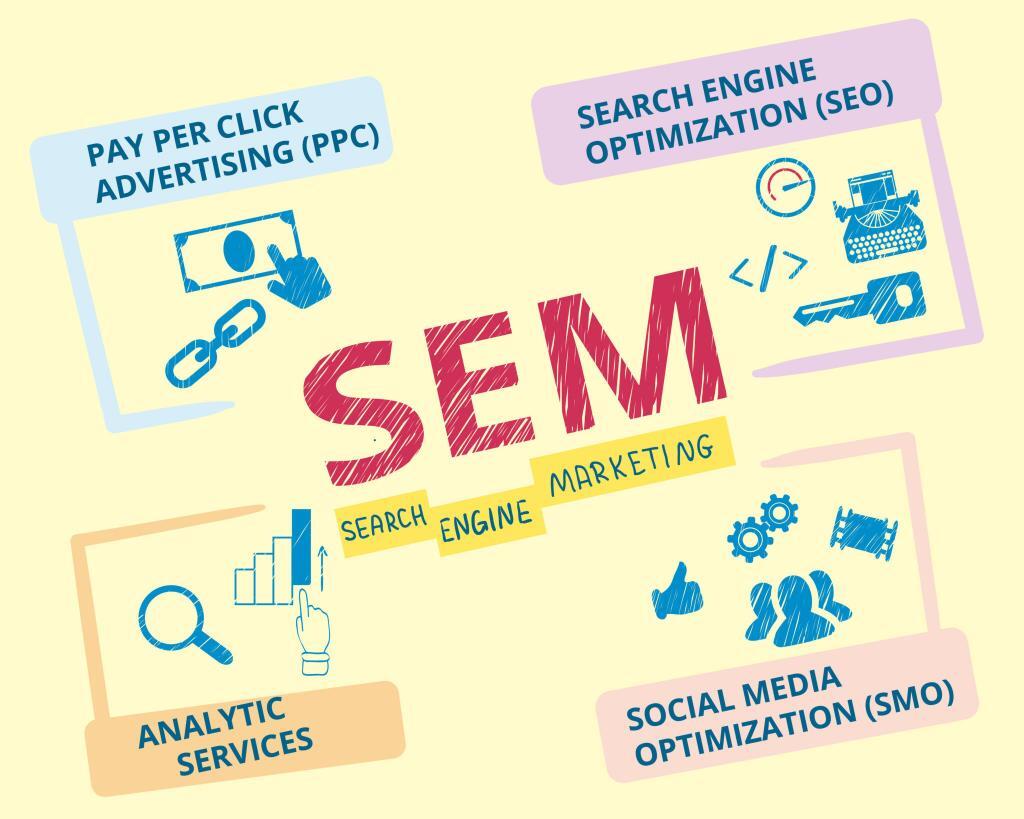
What’s in a name? Or more accurately, what’s in an acronym? PPC, aka pay-per-click, is a type of online advertising. SEM, or search engine marketing, is how you “pay to win” the ranking game. So, are SEM and PPC the same thing? No, but they’re related, and each has its unique place in the marketing plan of every business.
Confused? Lots of people are at first, but by the end of this post we promise you won’t be!
The 101 on Keyword Research
In online marketing, there are two search channels: paid and organic. Organic search results are the “natural” ones found underneath paid ads in the search engine results page, or SERP. PPC ads let businesses rise above organic results in the fastest way possible.
Keywords are the common denominator, but there is a distinct difference to the two approaches.
- Organic keywords and phrases are generally aimed at leads in the top or middle of the sales funnel. They tend to be informational, not transactional, and are chosen for their ability to help people easily find your website via search engines. An example might be the phrase “best shoes for running,” which indicates a person is doing research.
- “Ready to purchase,” “purchase intent” or “buying keywords” are used with PPC to target buyers who are ready to make a purchase, or convert. In this case, the search might be “Best price for Nikes.”
PPC and SEO keyword research strategies sometimes mingle, but they’re never the same. And if they do converge, it tends to be in the middle of the funnel, where particular words or phrases that indicate a lead is poised to purchase can be found. An example search would be “Nike v. Adidas.”
One final note: the clicks in organic and PPC should not lead to the same pages. Opt-in or product pages are ideal for paid ads and service or product pages designed to build trust and brand recognition are best for organic results.
SEM Stands for Search Engine Marketing
SEM can be a puzzling term because it’s used much less often than SEO, and people tend to assume the two mean the same thing. The simplest way to think of search engine marketing is as an umbrella strategy designed to increase your website’s visibility on Google and other search engines. In addition to SEO and PPC, it can also include SERM (Search Engine Reputation Management). SEM is big business, with companies like Google and Yahoo making almost all their revenue from it, including their PPC text ad fees.
How SEM Works
Search engine marketing is one of the most effective ways to grow your business in an increasingly competitive marketplace. Its greatest strength is that you get to place your PPC ads in front of motivated customers who are ripe to purchase your goods or services at the precise second they’re ready to buy.
SEM works in conjunction with a search engine’s algorithms that seek out particular keywords. When you create a PPC ad you are prompted to:
- Choose specific keywords or phrases that are related to the product or service you want to advertise.
- Select a geographic location where the ad will be targeted.
- Create a text-based ad that is displayed on the SERP, or search engine results page.
- Make a bid for the amount you’re willing to pay for every click on your ad.
The most obvious benefits to this approach are immediate better rankings and reliable conversions; the first because you pay to be placed high on the page, the second because your ad is being seen by people who are extremely likely to purchase your products or services.
Conclusion: Order the Combo
It would be easy to conclude that PPC is the best way to go in SEM. But it’s important to keep in mind that PPC only guarantees visibility. And you pay for the click whether the lead buys or not.
There’s a lot of value to be found in cross-channel collaboration. A combination of SEO for organic results and PPC ads in your SEM strategy ensures the best balance of impact over time and cost effectiveness.
The relationship between paid and organic search is a nuanced one that has many challenges. Atkins Marketing Solutions is uniquely positioned to help you integrate your SEM strategy to increase ROI. To learn how, contact us online today or call us at 714.904.4453


Leave a Reply